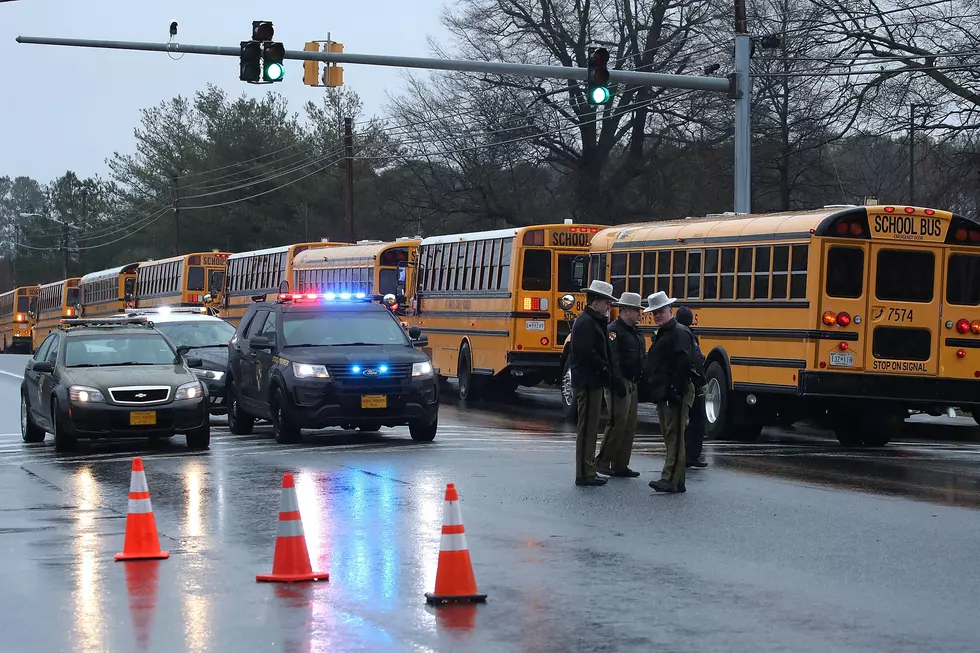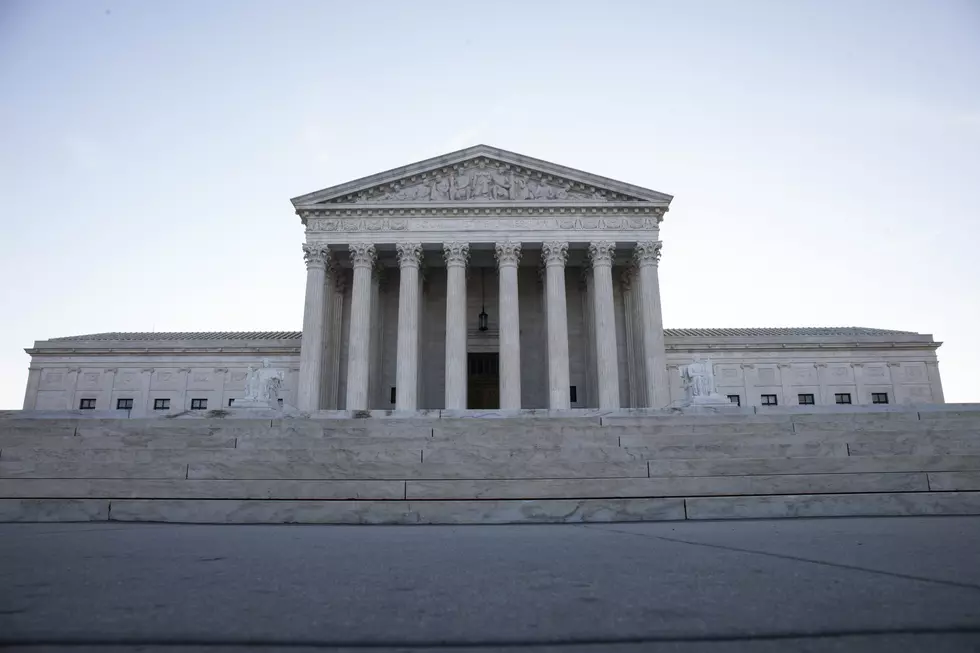
N.J. Dems passing bill requiring White House hopefuls to release tax returns
Democrats exasperated that Donald Trump got elected president despite not making public his tax returns, as had been the tradition for more than 40 years, have turned to state legislatures hoping to require their release to be listed on the ballot starting in 2020.
Bills have been introduced in 19 states – and this week, New Jersey might be the first place to get the idea through the Legislature, though it seems certain to meet a veto from Gov. Chris Christie, an ally of Trump.
The legislative action came a day before Trump's tax information from 2005 came to light via journalist David Cay Johnston at DCReport.org, and MSNBC's "The Rachel Maddow Show" Tuesday night.
Trump earned $153 million and paid $36.5 million in income taxes in 2005, paying a roughly 25 percent effective tax rate thanks to the alternative minimum tax that he has since sought to eliminate.
The White House pushed back even before the release of the documents Tuesday night, saying that publishing the information was illegal.
The state Senate passed the bill, S3048/A4520, by a 24-11 vote Monday without a word of debate, even after having the proposal skip the usual committee hearing. The Assembly is scheduled to vote on it Thursday.
“Presidents always disclose their tax returns. Presidents always put up blind trusts when they have businesses they have,” said Senate President Stephen Sweeney, D-Gloucester. “This is a president that’s refusing to do any of it, so it leads you to question their motivation on things.”
“It is very, very important for the president and vice president of the United States, candidates, to come clean with the American people. Certainly with people in New Jersey,” said Senate Majority Leader Loretta Weinberg, D-Bergen, the bill’s chief sponsor.
Weinberg said it would be better if Congress could compel the release of Trump’s tax returns, as U.S. Rep. Bill Pascrell Jr., D-Paterson, is seeking. Republicans who control Congress have declined to do so.
The bill moving in Trenton would say that candidates for president and vice president couldn’t be printed on New Jersey’s November ballot unless the candidates submit their five most recent years of federal tax returns with the state Division of Elections and consent to having the returns made public.
The tax returns and consent would have to be filed at least 50 days before the general election, which would fall in mid-September. The state would post the returns online within a week of receiving them.
Presidential electors would be prohibited from voting for candidates who don’t submit their returns.
Democrats aren’t pretending the proposal isn’t inspired by partisan politics. In some states, although not in New Jersey, the bill is called the Tax Returns Uniformly Made Public Act – or TRUMP Act.
Assemblyman John McKeon, D-Essex, said bills have been introduced in “red states, blue states – all,” although The Hill reported that of the 32 versions of the bill in 19 states, only one has been introduced by a Republican.
McKeon said the purpose is transparency.
“We want to know the sources of income of those running for the nation’s highest office. We want to know those sources as it relates to any potential conflicts that they could have. The sources of revenues, whether it’s foreign countries, etc.,” McKeon said.
“We want to know a little bit about their charitable giving and relative to the extent of that. And we want to know how aggressive they might be in the use of tax shelters and the like,” he said. “It’s just something else that goes into the evaluative process of being an informed voter.”
When the bill advanced last month in the Assembly Judiciary Committee, in a party-line vote, Assemblyman Michael Patrick Carroll, R-Morris, was turned back by Democrats when he suggested expanding the bill to cover candidates for state office.
“It seems to me that the same concerns that you just raised about president of the United States apply with equal force to virtually all elected officials, including our governor and ourselves,” Carroll said.
McKeon said he believes the bill is constitutional under the broad authority the Supreme Court interpreted states as having over administering elections in the Bush v. Gore case in 2000, though he acknowledged there are conflicting opinions.
Weinberg said that if somebody were to sue over the law, so be it.
“Anything is constitutional until somebody takes it to court,” Weinberg said.
The Associated Press contributed to this report.
New Jersey: Decoded cuts through the cruft and gets to what matters in New Jersey news and politics. Follow on Facebook and Twitter.
Michael Symons is State House bureau chief for New Jersey 101.5 and the editor of New Jersey: Decoded. Follow @NJDecoded on Twitter and Facebook. Contact him at michael.symons@townsquaremedia.com
More From New Jersey 101.5 FM









